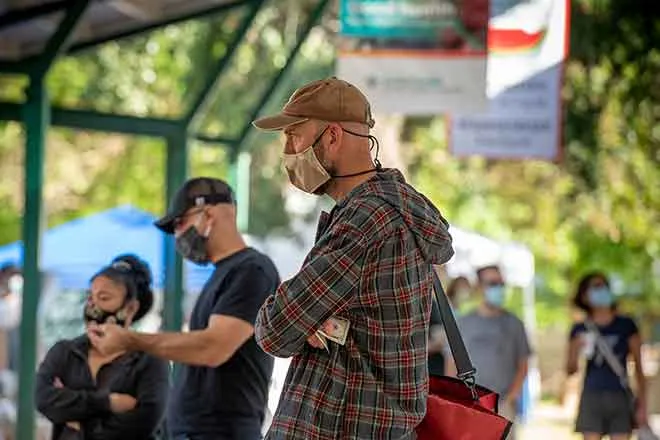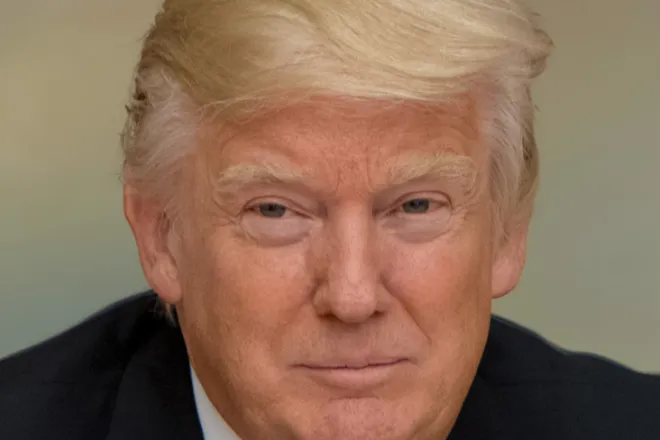
Colorado AG joins states targeting Chinese app linked to fentanyl trade
A version of this story originally appeared in the South Carolina Daily Gazette.
Attorneys general from six states, including Colorado, say they’re demanding accountability from WeChat, a Chinese messaging and payment platform being used by fentanyl traffickers.
The bipartisan group is giving WeChat, what’s become known as a super app, a month to detail what steps it’s taking, if any, to combat its use as a money launderer for the international drug trade.
I have worked tirelessly to address the opioid crisis by using every tool we can to save lives, including cracking down on the distribution of fentanyl,” Phil Weiser, the Democratic attorney general of Colorado, said in a statement. “That’s why I fought for legislation in Colorado, based on a report from our office, to ensure that online platforms have a greater responsibility to police their platforms and cooperate with law enforcement.”

© iStock - Chinnapong
“We need answers; we need them now,” Republican Alan Wilson, South Carolina’s attorney general since 2011, said at a news conference Monday in Charlotte, North Carolina.
Standing beside him was North Carolina Attorney General Jeff Jackson, a Democrat.
A letter dated Monday instructs WeChat to send answers by June 11 to the attorneys general in North Carolina and New Jersey, two states where “knowingly facilitating, or aiding and abetting, money laundering” is a crime.
“WeChat’s contribution to the devastating fentanyl crisis endangers the life and health of our people,” they wrote in the letter, also signed by attorneys general from Mississippi and New Hampshire.
If WeChat fails to respond, lawsuits from the states’ chief prosecutors could follow, as well as advocacy for laws and regulations, Wilson and Jakson said.
WeChat is one of the world’s most popular messaging apps with more than a billion users globally, including a million-plus in the United States. The app created by the company Tencent allows encrypted messaging and payments to be made within it — two features that have made it incredibly popular for criminal activity, according to prosecutors.
The app has been linked to major drug operations.
In October 2023, the Drug Enforcement Agency announced indictments against eight Chinese companies and 12 people in a bust dubbed Operation Chem Capture. They were accused of importing the chemicals used to make fentanyl — called fentanyl precursors — as well as other drugs such as xylazine that are mixed with fentanyl to increase cartels’ profits.

The multi-agency operation seized enough synthetic chemicals to make more than 48 million potentially lethal doses, the agency’s administrator, Anne Milgram, said in a statement submitted to the U.S. House last May.
“Operation Chem Capture once again showed that these synthetic chemicals are cheap — a deadly dose costs mere cents — and sold online on public websites and through encrypted applications like WhatsApp, WeChat, and Wickr,” the statement read.
Jackson illustrated a three-step process for how Chinese brokers and drug cartels use WeChat to partner for fentanyl dealing.
Chinese companies sell the chemical ingredients to the cartels, who make the fentanyl. The drug is then smuggled into the country and sold for cash. In the final step, the cash is given to Chinese brokers who use WeChat to give the money back to the cartel, he said.
“We estimate that we are talking about billions of dollars per year,” Jackson said.
The joint letter, which uses Jackson’s letterhead, is addressed to “whom it may concern” at WeChat’s registered agent in Delaware.
People “are using the internet to evolve how they launder money, to evolve how they evade detection by law enforcement, to evolve how they promote this type of illicit activity,” Wilson said. “So, we have to evolve with them.”
Wilson told reporters the fentanyl epidemic is the top issue that keeps him up at night.
WeChat’s alleged role in crimes
In 2023, Weiser’s office issued a report on social media and the sale of illegal drugs, including fentanyl. The report included several recommendations. For example, it called for new state legislation that would require social media companies to disclose their policies on drug activity and to be more transparent about their enforcement activities, more law enforcement resources, and a new federal agency to oversee social media platforms.
In South Carolina, overdose deaths have soared from 613 in 2013 to 2,296 in 2022, according to the most recent statistics from the state Department of Public Health. That represents a near-quadrupling over that decade.

© scanrail - iStock-910651416
Fentanyl accounted for more than 70 percent of those 2022 deaths, or 1,660 overdoses, representing a near-quadrupling over just five years, according to the 2024 report.
“Everybody knows someone, either personally or within one or two degrees of separation, where a family has lost a young person or someone has died as an overdose as a result of the illicit fentanyl trafficking going on in our respective states,” Wilson said.
Last month, three men — two from Sumter and one from Georgia — were indicted in South Carolina in what federal prosecutors called one of the largest international, drug-related money laundering operations the Palmetto State’s ever seen.
They’re accused by the U.S. Department of Justice of laundering more than $30 million in the trafficking of fentanyl and other drugs, as well as taking cash from two Mexican cartels and using it to purchase and ship electronics to Hong Kong, China and the United Arab Emirates to be sold for profit.
WeChat played a crucial role in the alleged criminal dealings, Wilson’s office noted in a news release Monday.
“WeChat has become a digital safe haven for fentanyl traffickers and money launderers, and they know it,” said Wilson.
SC Daily Gazette is part of States Newsroom, a nonprofit news network supported by grants and a coalition of donors as a 501c(3) public charity. SC Daily Gazette maintains editorial independence.

















